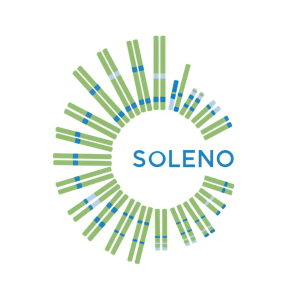Soleno Therapeutics Announces Oral Presentation featuring DCCR (Diazoxide Choline) Extended-Release Tablets in Prader-Willi Syndrome at ENDO 2024
Soleno Therapeutics announced that data from the randomized withdrawal period of Study C602, focusing on DCCR (diazoxide choline) extended-release tablets in Prader-Willi Syndrome (PWS), will be presented at ENDO 2024. The presentation will occur on June 2, 2024, at the Annual Meeting of the Endocrine Society in Boston.
The study's results indicate that withdrawing DCCR worsens hyperphagia (excessive hunger) and increases weight and BMI in patients with PWS. The presentation, titled 'Withdrawal of DCCR (Diazoxide Choline) Extended-Release Tablets Worsens Hyperphagia and Increases Weight and BMI in a 16-week Double-blind, Placebo-controlled, Randomized Withdrawal Period in Patients with Prader Willi Syndrome,' will be delivered by Dr. Evelien Gevers from Barts Health NHS Trust and Queen Mary University London.
- DCCR is featured in a prestigious oral presentation at a major medical conference (ENDO 2024).
- Study C602 provides concrete data on the efficacy of DCCR in managing PWS symptoms.
- The study shows significant findings that can bolster DCCR's profile in the medical community.
- Association with respected institutions like Barts Health NHS Trust and Queen Mary University London.
- Presentation indicates worsening conditions (hyperphagia, weight, BMI) upon withdrawal of DCCR, highlighting potential dependency on the drug.
- The study results may raise concerns about the long-term sustainability and overall health impact of DCCR treatment.
- Possible investor concern over the reliance on continuous medication for effectiveness.
REDWOOD CITY, Calif., May 22, 2024 (GLOBE NEWSWIRE) -- Soleno Therapeutics, Inc. (“Soleno”) (NASDAQ: SLNO), a clinical-stage biopharmaceutical company developing novel therapeutics for the treatment of rare diseases, today announced that data from the randomized withdrawal period of Study C602 of DCCR (diazoxide choline) extended-release tablets in Prader-Willi Syndrome (PWS) will be featured in an oral presentation at the Annual Meeting of the Endocrine Society (ENDO 2024), being held June 1-4, 2024 in Boston, Massachusetts.
Details of the presentation are as follows:
| Title: | Withdrawal of DCCR (Diazoxide Choline) Extended-Release Tablets Worsens Hyperphagia and Increases Weight and BMI in a 16-week Double-blind, Placebo-controlled, Randomized Withdrawal Period in Patients with Prader Willi Syndrome |
| Format: | Oral Presentation |
| Session: | OR31. Adipose Tissue, Appetite, and Obesity: Updates on Central Regulation of Appetite and Feeding |
| Date/Time: | Sunday, June 2, 2024 at 2:45 – 3:00 pm ET |
| Presenter: | Evelien Gevers, M.D., Ph.D. (Barts Health NHS Trust and Queen Mary University London) |
About PWS
The Prader-Willi Syndrome Association USA estimates that PWS occurs in one in every 15,000 live births. The hallmark symptom of this disorder is hyperphagia, a chronic and life-threatening feeling of intense, persistent hunger, food pre-occupation, extreme drive to food seek and consume food that severely diminish the quality of life for patients with PWS and their families. Additional characteristics of PWS include behavioral problems, cognitive disabilities, low muscle tone, short stature (when not treated with growth hormone), the accumulation of excess body fat, developmental delays, and incomplete sexual development. Hyperphagia can lead to significant morbidities (e.g., obesity, diabetes, cardiovascular disease) and mortality (e.g., stomach rupture, choking, accidental death due to food seeking behavior). In a global survey conducted by the Foundation for Prader-Willi Research,
About DCCR (Diazoxide Choline) Extended-Release Tablets
DCCR is a novel, proprietary extended-release dosage form containing the crystalline salt of diazoxide and is administered once-daily. The parent molecule, diazoxide, has been used for decades in thousands of patients in a few rare diseases in neonates, infants, children and adults, but has not been approved for use in PWS. Soleno conceived of and established extensive patent protection for the therapeutic use of diazoxide, diazoxide choline and DCCR in patients with PWS. The DCCR development program is supported by data from five completed Phase 1 clinical studies in healthy volunteers and three completed Phase 2 clinical studies, one of which was in patients with PWS. In the PWS Phase 3 clinical development program, DCCR showed promise in addressing hyperphagia, the hallmark symptom of PWS, as well as several other symptoms such as aggressive/destructive behaviors, fat mass and other metabolic parameters. Diazoxide choline has received Orphan Drug Designation for the treatment of PWS in the U.S. and E.U., and Fast Track and Breakthrough Designations in the U.S.
About Soleno Therapeutics, Inc.
Soleno is focused on the development and commercialization of novel therapeutics for the treatment of rare diseases. The company’s lead candidate, DCCR (diazoxide choline) extended-release tablets, a once-daily oral tablet for the treatment of Prader-Willi syndrome (PWS), recently completed its Phase 3 development program to support a planned NDA submission. For more information, please visit www.soleno.life.
Corporate Contact:
Brian Ritchie
LifeSci Advisors, LLC
212-915-2578








